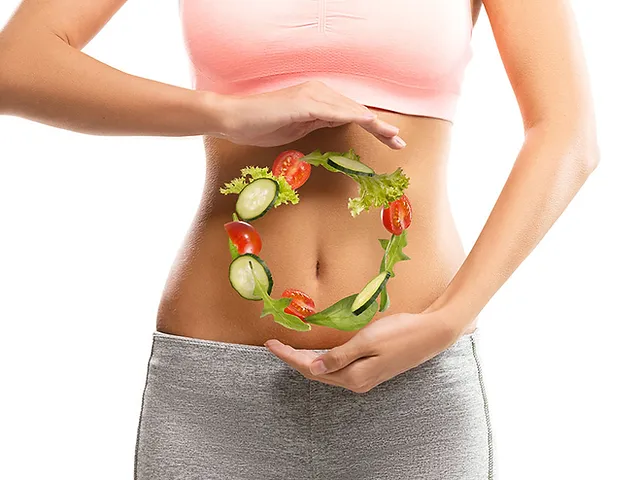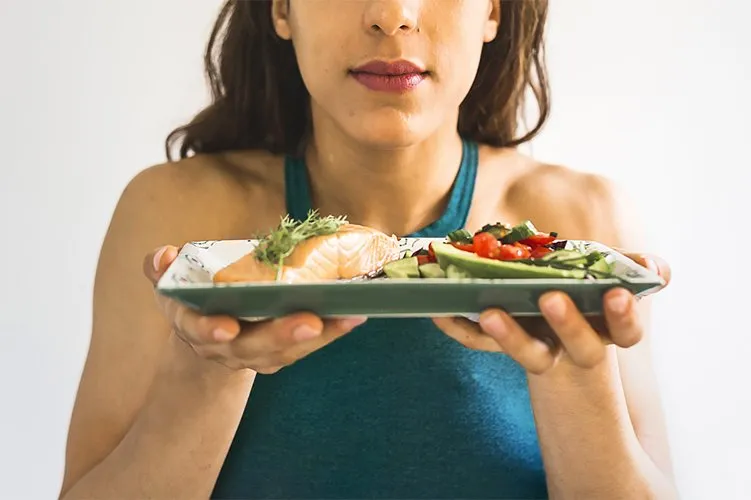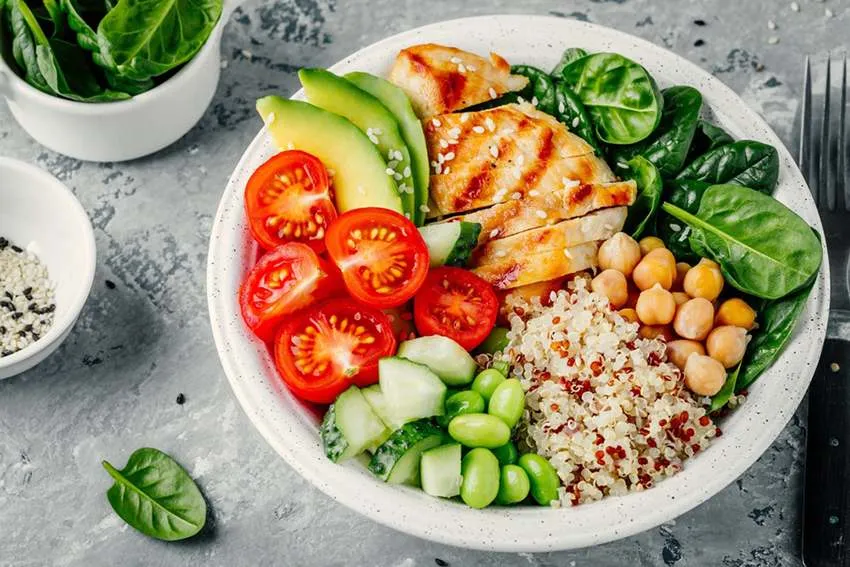On This Page
Best Dietary Guidance for Irritable Bowel Syndrome (IBS) Patients
Food is one among the three pillars of life that is known as Tryoupstambha. There is a saying by Vaidya Jeevana:
Pathye Sati Gadaarthasaya Kimoushada Nishevanaih |
Pathye Asati Gadaarthasaya Kimoushadha Nishevanaiih ||
If you follow a wholesome diet and regime, then there is no use of medicine and if you don’t follow wholesome diet and regime then also there is no need for medicine.
So following do’s and don’ts i.e Pathya and Apathya is very important for proper treatment of diseases.
Pathya and Apathya – As Per Classical Literature of Ayurveda
Pathya (Upshya) – Do’s for IBS as per classical literature
Ausadha for Grahani
Dasamuladya Ghrita, Tryusanadya Ghrita, Pancamuladya Ghrita and Churna, Citrakadya gutika, Pippaladya Curna, Marichyadi Churna, Takrarista, Tiktaka Ghrita, Nagaradya Churna, Bhunimbadi Churna, Kiratadya Churna, Madhukasava, Duralabhasava, Mulasava, Pindasava, Madhparista, Pippalyadi Churna, Kara Ghrita, Bhallatakadya Ksara, Duralabhadya Ksara, Bhunimbadiksara, Haridradya Ksara, Ksara Gutika, Talisapatradi Churna, Pancamuladi Ghrita.
Aahara and Vihara for Grahani (IBS)
Charaka Samhita Chikitsa Sthana: 15/ 115- 117
- Soup of Panchakola or the soup of Mulaka prepared by adding Marica and ghee or oil
- Spiced meat soup of wild animals added with ghee and sour pomegranate & butter, meat
- Soup of carnivorous animals mixed with appetizers is recommended as a diet. Buttermilk, sour gruel, wine & Arista should be taken as a post-meal drink.
- The use of buttermilk (Takra) with salt is very effective in checking psilosis. The buttermilk is very useful in adjusting the three orders of the body including Vata, Pitta, and Kapha. It is light and thus helpful in promoting digestion. It is Madhura in Vipaka and thus it does not vitiate the Pitta Dosha. It is sour, astringent, and hot by nature and thus it controls the Kapha contents as well. The fresh buttermilk is smooth, and it does not produce a burning sensation as well.
निद्रा छर्दन लंघन चिरभवा ये शालय: षष्टिका
मण्डो लाजकृतो मसूरतुवरीमुदूगप्रसूता रसा:।
निःशेषोद्धृतसारमेव दधि यत्सक्षीरजात॑ गवां
छागान्याज्यपयोदधीनि तिलजं तैल॑ सुरा माक्षिकम
रम्भाया: कुसुम फल च तरुणं बिल्व॑ च श्रृंगाटकम
चंगेरी विजया कपित्थकुटजाजाजी कसेरूणि च।।
तक्रम काञ्चत सौनिषण्णदलकं जाती फल जाम्बव॑
धन्याकानि च तिन्दुकानि च महानिम्बो अरुणापेलवम्।
क्रव्याल्लावशशैणतित्तिरिरसा: क्षुद्रा झशा: सर्वशः
खुड्डीशो मधुरालिका च खलिश: सर्व: कषायो रस:।।
नाभे द्वय अंगुलकादधोर्धशशिवद्वंशास्थिमूले तथा।
दाह: प्रज्वलितायसा च कथित॑ पथ्यं ग्रहण्यातुरे।।
Pathya Apathya Vinirnya, Grehani Roga, by “Brahmanand Tripathi”, 60- 63, Bhaishjya Ratnavali 8/ 622- 625
- Sleeping
- Vomiting
- Langhana (fasting)
Taking old Sali rice, old Sasthi rice (rice harvested in 60 days), a liquid obtained from the cooked rice, pulse soup of Masura Dala, Adhya (pigeon peas) and Mudga Dala, curd of cow’s milk containing no butter, butter obtained from goat’s milk or curd, Ghritam of goat’s milk, cow’s milk, curd, sesame oil, liquor, honey, Kamalakanda, both types of pomegranate, fruit, and flowers of banana, the pulp of fresh Bilva fruits, Sringataka, Changeri, Vijaya, Kapittha, the bark of Kutaja, cumin seeds, buttermilk, leaves of Jatiphala, Jambu, coriander, Tinduka, Mahanimba, the meat of carnivorous birds, meat soup of rabbit, Tittira (partridge) and all types of small fish, Khuddisa (one type of fish which flies for a short period), Madhuralika (type of fish), Khalis (type of fish), all types of sour liquids. One can also heat the patient around the areas two fingers up and two fingers down of the belly and also at the roots of the backbone. It also helps the patient Grahani.
Apathya (Anupshya) for IBS (Grahani) – Don’ts for IBS as per classical literature
रक्त स्त्रुतिमजागरम अम्बुपानं स्नान॑ स्त्रियं वेगविनिग्रह॑ च ।
नस्याज्जनस्वेदनधूमपान॑ श्रम॑ विरुद्धाशनमातपं च।।
गोधूमनिष्पावकलायमाष यवार्द्रकच्छत्रकराज माषाण।
उपोदिका वास्तुककाकमाची कूष्माण्डतुम्बीमधुशिमुकन्दान्।।
ताम्बूलमिक्षुंबदर॑ रसाल मेव्वारुक॑ पूगफलं रसोनम् ।
धान्यअम्लसौवीर तुष्उदकानीदुग्धंगुड़ मस्तु च नारिकेलम्।।
दुष्टाग्बु गोवारि कुरंग नार्भि क्षारं समस्तानि सराणि चापि।।
द्राक्षामथाम्ल॑ लवणं सर च गुर्वन्नपान॑ सकलं च पूपम्।
वैद्यश्चचिकित्सन् ग्रहणीविकार॑ विवर्जयेतसन्ततमप्रमत्त:।।
Pathya Apathya Vinirnya, Grehani Roga, by “Brahmanand Tripathi”, 64- 68, Bhaishjya Ratnavali 8/ 617- 621
Bloodletting, roaming during the night, drinking excessive water, bathing, intercourse, stopping the flow of excretions, nasal therapy, application of collyrium, Swedana therapy, smoking, heavy work, incompatible food, sunbathing or enjoying fire heat, taking food items prepared from wheat, white beans, peas, Urada (pulse soup), barley, ginger, Catraka (mushroom), Rajamasa, Upodika, Vastuka, Kakamäci, ash gourd or Kasiphala, Tumbi, ripe drum stick, potato, and other tubers, betel leaves, sugarcane, berry, mango, snake cucumber (Karkati), betel nut, garlic, Kanji, Sauvira (barley and wheat’s Kanji), Tusodaka (Kanji of Yava along with its peels), jaggery, coconut fruit or water, Punarnava, the fruit of Kantakari, bamboo. shoots, all types of leafy cuisine, contaminated water, cow’s urine, Kasturi, Yavaksara, Draksa, and sour eatables, salt, taking heavily to digest meals, all types of pudding, and Puri.
Irritable Bowel Syndrome Dietary Guidance
Follow the four main points given below, that help to treat the Lakshana (Symptoms) of IBS.
- Eat roughage (fibers) as per the type of IBS you are suffering from.
- Gluten-free diet
- Follow a low FODMAP diet
- Elimination diet
Eat roughage (fibers) as per the type of IBS you are suffering from:
The normal requirement of roughage (fibers) in the diet-
- Do you know, adults should get 22- 34 grams of fiber per day as per the Dietary Guidelines for Americans, 2022- 2025
- Men require approximately 38 gram and women require 25 grams of fiber per day.
- The survey revealed that people are eating only half of the fiber as per requirement.
Fibers make stool softer and easier to pass.
Types of fiber:
Soluble fiber: These are the fibers that are hydrophilic (attract water) and turn to gel during digestion. These types of fibers are found in fruits, vegetables, beans, lentils, oat bran, seeds, barley, peas, nuts, and lentils. This type of fiber is also present in Isabgol (Psyllium), the most common fiber supplement. As per recent research, soluble fiber is more helpful in treating IBS.
Insoluble fiber: These types of fibers do not blend with water and pass through the digestive system intact. Insoluble fibers act as bulking agents. Insoluble fibers are present in whole grain food, vegetables, etc.
- Maximum food contains both types of fibers, they are nutritious and help to prevent constipation. However, fibers may lead to bloating and gas depending on their fermentation rate, so increase the intake of fibers gradually i.e., 2- 3 grams per day.
- Intake of fiber is helpful if you are suffering from IBS- C but if you are suffering from IBS- D that fiber consumption may worsen your symptoms. But as per research reduction of fibers is not supported so the patient with IBS- D can take soluble fibers as they dissolve in water and does not add extra bulk like berries, oatmeal, peas, carrots, etc. Avoid fibers like nuts, tomatoes, green beans, broccoli, and Zucchini in case of IBS- D.

Have A Health Issue?
Consult Online
- Dr. Sahil Gupta (B.A.M.S., M.H.A.)
Ayurvedic Allergy Specialist
CEO & Founder of IAFA®
Gluten-Free Diet
Gluten is a type of protein that is mainly found in rye, barley, wheat, and triticale (a cross hybrid between wheat and rye). A gluten-free diet means, excluding the diet that contains gluten.
A survey suggests that people who are sensitive to gluten experience IBS. So, in that case, avoid gluten to check whether your symptoms are improving.
A small research study was conducted (https://www.cghjournal.org/article/S1542-3565(15)01715-2/fulltext) which suggests that people who follow a gluten-free diet for IBS have decreased symptoms.
What you can include in your diet:
Vegetables: Green leafy vegetables, all types of gourds like snake gourd, ivy gourd, bottle gourd, bitter gourds, Indian round gourd (Tinda), etc, lady finger, etc.
Fruits: Banana, Grape, Mosambi, Blackberry, blueberry, Cranberry, Cherry, Papaya, Citrus fruits.
Cereals: Oats, Bajra, Ragi, Rice.
Pulses: Beans like kidney, pinto, back eyes, French, cluster beans, etc, Red gram, Green gram.
What to avoid:
- Wheat
- Barley
- Rye
- Oats in a few cases
- Triticale.
Follow a low FODMAP diet
FODMAP stands for fermentable oligosaccharides, disaccharides, monosaccharides, and polyols. FODMAP is the carbohydrates that are difficult to digest as they pull more water to the bowel and increase bloating, gas, pain, diarrhea, etc. intake of a low FODMAP diet may decrease your symptoms associated with IBS.
Food that is low in FODMAP are:
- Eggs
- Meat
- Rice
- Quinoa
- Fruits like blueberry, grapes, strawberries, oranges, etc.
- Vegetables like eggplant, green beans, pumpkin, carrot, zucchini, etc.
Avoid:
- Fruits like Mango, plum, apple, watermelon, and peach.
- Vegetables, like broccoli, onion, asparagus, and artichokes.
- High fructose corn syrup.
- Legumes like lentils, kidney beans, chickpea
- Lactose should also be avoided if you are lactose intolerant.
Elimination diet
There are a few foods that trigger the symptom of IBS, like milk, ice cream, coffee, alcohol, soda with artificial sweeteners, high fructose corn syrup, etc. An elimination diet means avoiding certain food for some time, to see whether symptoms improved or not. If You are an IBS patient and addicted to the above-mentioned triggering food items of IBS, eliminate them for 4 weeks from your diet and check whether your symptoms have improved or not.
Ayurvedic Reference of Diet in IBS – Grahani

References
- Tripathi Brahmanand and Pandey G.S, Charaka Samhita of Agnivesa with Charaka Chandrika Hindi Commentory, 6th Ed.,Varanasi: Chaukhamba SurbharatiPrakashan., (Vol-1), 1999.
- Tripathi Brahmanand and Pandey G.S, Charaka Samhita of Agnivesa with Charaka Chandrika Hindi Commentory, 6th Ed.,Varanasi: Chaukhamba SurbharatiPrakashan., (Vol-II), 1999.
- Shastri K. Ambikadatta, Sushruta Samhita of Maharsi Sushrut edited with Ayurveda Tattva Sandipika Hindi Commentary, 13th Ed., Varanasi: Chaukhamba Sanskrit Bhawan.,(Vol-1), 2000.
- Shastri K. Ambikadatta, Sushruta Samhita of Maharsi Sushrut edited with Ayurveda Tattva Sandipika Hindi Commentary, 13th Ed., Varanasi: Chaukhamba Sanskrit Bhawan.,(Vol-II), 2000.
- Vagbhatta Astanga Hridaya, Nidana sthana, edited by Y. Upadhaya, Chaukambha Prakashan, Varanasi, 2012.
- Textbook of pathology by Harsh Mohan: seventh edition.
- Brahmanant Tripati, Madhava Nidana Chukambha surabharati prakashan,Edition, 2012.
- Shri Shashtri. S, Madava Nidanam of Madavakara with Madhukosha Sanskrit Commentary, Chaukhamba Sanskrit Sansthan,Varanasi:, 2003
- Dr. P. S. Byadgi, Dr. A. K. Pandey. A textbook of Kaya Chikitsa, reprint 2017, Chaukambha publication, Vol. II.
- Dr. Nisha Kumari, A textbook for Roga Nidana and Vikruthi Vigyana, First edition 2017, Chaukambha Orientalia, Vol. II.
- Dr. P. S. Byadgi, Ayurvediya Vikriti Vijana, and Roga Vijanana, reprint 2016, Chaukambha publication, Vol. II.










